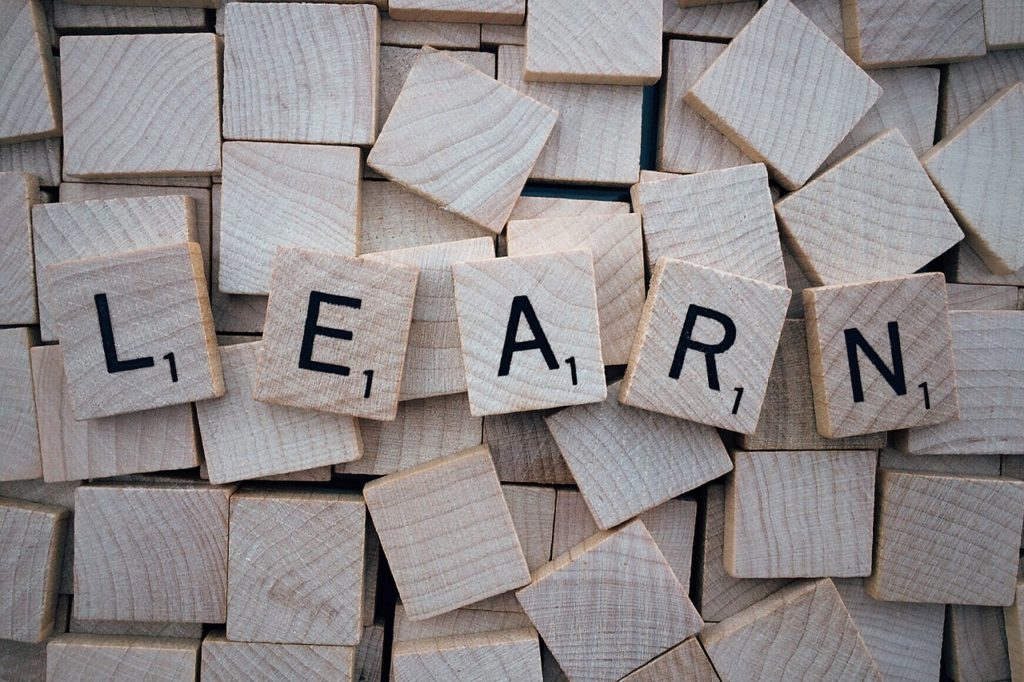Below our resident optimist Tim Drake writes about The Autonomy of Learning and Lifetime Learning …
We are fortunate to live in an age when lifetime learning is now a widely accepted concept. The professional and business worlds understand that the rate of change in all areas demands that managers and employees need to keep up to speed on what is going on in their sphere of operation.
And it’s true in most areas of human activity.
Because we are either learning and growing, or we are withering and dying.
This becomes increasingly relevant in our later years when there is a temptation to think we know enough to get by. Not on the intricacies of online activity perhaps, but most other things.
Sadly, such thinking leads to the closing off of potential new areas of excitement and fulfilment. Worse, it leads to us shrivelling as human beings.
What Kind of Learning?
Of course there are many kinds of learning. Most are relevant to increasing the sweetness of the second bite of our cherry, but some are more important than others.
“The mind is not a vessel to be filled but a fire to be lighted”.
This aphorism, from Plutarch, some two thousand years ago, like all true wisdom, is timeless.
More than ever, in today’s rich availability of unstructured knowledge online, we are looking for insight, rather than facts. Understanding rather than knowledge Knowledge is important. Both for keeping up to date with your existing area of expertise, if you wish carry on with that, or learning about new areas that interest you.
Learning is thus a stimulus. It lights the fire. It’s what will keep you plugged in to the working world around you.
The New, Easy and Effective Way to Learn
Back in the last century, learning could be hard work. Many were put off by the way we were taught things – learning by rote, unfriendly text books, even an negative school environment.
The new philosophy of learning is centred on videos. With videos, you have control (autonomy ) and information is communicated in a more easily digestible way. More than that, it’s enjoyable. And you can do at a time that’s convenient to you. On a desktop, or a laptop at home, or on your phone when you are travelling.
For our purposes, a good place to start is the TED (and TEDX) lectures. They’re a feast to savour. Thinkers and doers share their knowledge and wisdom in extremely digestible portions. For a taster, I’d highly recommend taking a look at one of Dan Pink’s lectures on motivation:
DO lectures are also good (there’s even one by me!), and look up Simon Sinek on You Tube. Short, pithy, full of insight and wisdom.
Books, of course are a rich source of learning, as are lectures (many are free, and are online nowadays. RSA Lectures (Royal Society of Arts), are often brilliant, and available live, or online.
Build a Personal Learning Pot
Start now. Put aside whatever money you can spare on a regular basis. The money will cover books, trips, and importantly conferences and courses. These are particularly helpful. Whether you are updating existing knowledge and skills, or for learning something entirely fresh, going to a conference is a double win. As well as learning from the speakers, interacting with the other delegates can be a rich source of enlightenment, contacts, and new possibilities. Of course there are also opportunities to take up free courses with The Open University!
Making Time to Learn – Wisdom Wednesdays
It’s easy to get out of the way of learning. As we get older, we tend to value our non-working time highly, and see it as a reward.
But remember, we’re not retiring, we’re getting a second bite of the cherry.
One challenge some people face when stopping full time work, is unstructured time. Having no regular timetable can be disorientating. I recommend putting aside a set time each week. I call it Wisdom Wednesday.
I commit to watching instructive videos, or reading an article or a book at the same time each week. I do this for at least two or three hours of the day, in one session, so I can concentrate. I also take any scrap of time I can for more watching of lectures, listening to podcasts reading books or magazines.
Whether Wisdom Wednesday – or Thought-Provoking Thursday – a fixed chunk of time – is important. It’s also worth plugging in to some lighter daily fare. There are several blogs that are worth following, but one I would highly recommend is Seth Godin.
Seth’s daily taster is usually pretty nourishing. They’re usually short, challenging, interesting, and enjoyable.
Don’t Feel Guilty about Spending Time Learning
Life, of course gets in the way, so you are unlikely to find it convenient to put aside the same time slot every week. The crucial thing is to avoid it slipping down the priority list, and not to feel guilty investing time in it.
If you are watching a TED lecture, or listening to a podcast, and someone comes into the room, it’s very tempting to cover up what you are doing. It doesn’t seem like work. There’s lots of stuff to shovel, and you are patently not shovelling it.
Resist the temptation to quickly get on with something more obviously useful or productive. It’s your learning and thinking time – protect it, and feel proud you are keeping fresh and engaged intellectually.
The whole point of autonomy is that you are in control. If you decide you will put aside a slug of time each week to develop yourself – so you can be better at what you do, and enjoy it more – that’s your privilege.
And remember, you won’t be tested on it, so there is no need to be frightened. Just enjoy it. It could open up exciting new avenues to explore.
And adventures to be enjoyed. Get learning!







